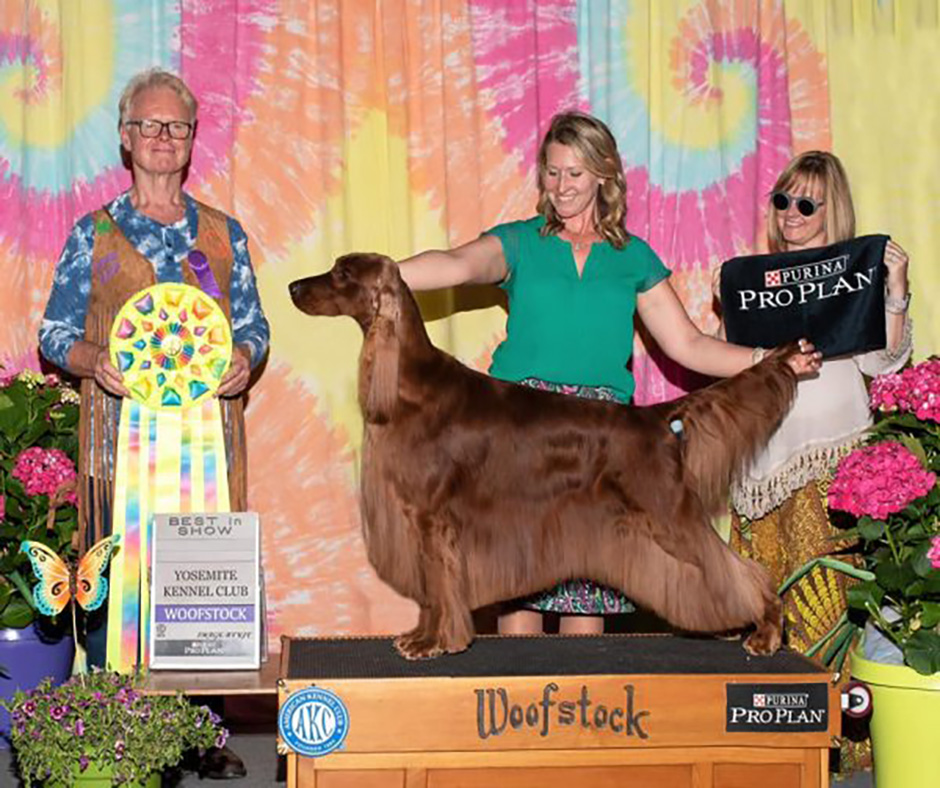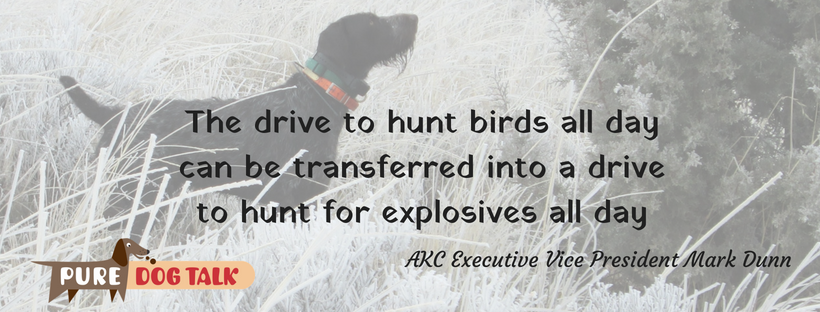306 – Bill Shelton on Positive Messaging in Purebred Dogs
Bill Shelton on Positive Messaging in Purebred Dogs
Bill Shelton imparts his wisdom in part one of a three-part series from a wide-ranging conversation about positive messaging in purebred dogs.
People respond to positive messages, Shelton said, which will allow us to change perceptions within the general public. Words like preservation and purpose bred dogs change the paradigm of purebred that can have negative connotation.
“Look what shelters have done,” Shelton said. “They used to be known as the dog pound and mongrels. Look at it today, shelter, rescue, adoption. What fabulous words they use. We still use all these draconian words like kennel, breeders and purebred. They are accurate, but we need to move past them. Even the boarding industry has recognized the anthropomorphized words and have day care and stylists instead of kennel runs and groomers.”
We as breeders and exhibitors have the responsibility to take back the conversation and can’t rely exclusively on the American Kennel Club to do the work for us, Shelton noted.
“I don’t use the word responsible any more because 30 people have a different understanding of what that means,” Shelton said. “Purpose bred means that not only are the dogs bred for intellect and the way they look and predictability, they are bred intentionally by people who care about them.”
The term preservation breeder opens up the opportunity for conversation in the community, Shelton said.
“The paradigm has to change,” Shelton said. “We’ve focused so much on dog shows, that we began to believe that is the most important thing. What’s really important is that you and I as dog breeders supply the demand of happy, healthy family companions.”
Accountability
“As breeders, we are taking accountability,” Shelton said. “We are the ones taking responsibility from cradle to grave. The rescue started in the halls of the AKC and parent clubs. This is one of the reasons we find only five percent identifiable purebreds in shelters.”
We have to assimilate different perspectives rather than pushing against them, Shelton said. We need not to demean people but rather encourage them to understand what preservation breeders are doing, including producing quantitative predictability of health.
Learn more: 23 – Our Breeds are Endangered: Preservation Breeding-Bill Shelton
209 – Made in the USA: Breeding Our Own Bomb Dogs
Bomb Dogs: Purpose bred, purpose raised, purpose trained
Mark Dunn, AKC’s Executive Vice President, has been leading the charge to develop a program to produce purpose bred, purpose raised and purpose trained dogs domestically for explosives detection work.
“There is a growing demand for dogs who can help protect us,” Dunn said. “It is driven by companies and organizations, as well as police and military. Universities, arenas, sports leagues – they are all requiring detection dogs to clear the venue ahead and work the crowds.”
All of these dogs are currently coming from eastern Europe, Dunn noted. United States military and independent contractors acquire 80-90 percent of their bomb detection dogs from the same countries where the entire world shops.
“We’re trying to outbid Saudi Arabia or Israel or Indonesia to buy dogs from these kennels in Europe,” Dunn observed.
In our first conversation with Dunn, he outlined the goal of developing breeding programs in the U.S. to protect our country.
“We have to find a way to bridge the gulf between the U.S. breeders and people training the dogs to do the work,” Dunn said. “U.S. breeders don’t raise dogs for anyone but themselves. Generally, our breeders don’t raise a puppy to 10-12 months to sell.”
The government is looking for a dog that’s ready to do the work, Dunn added. The dogs need key skills – a high hunt drive, environmentally stable, accustomed to noises and moving objects. These need to be well-socialized and exposed puppies who grow up to be confident and capable dogs.
AKC has created a task force and a conference to bring all of the stakeholders together.
“This is a great example of how purposeful, thoughtful breeding by American breeders can help protect our country,” Dunn said. “It highlights the important role that purebred dogs play in our country and it reflects well on ALL breeders who are thoughtfully and purposefully breeding dogs.”
One of the potential stumbling blocks, Dunn agreed, is the question of what happens to dogs that don’t make it. What happens when a dog’s useful working life comes to an end?
“It’s important that AKC play a role in this,” Dunn said. “No one has answered that question well yet. And parent clubs and fanciers are asking it. We can get those sort of things in place. There should be a way for me to breed a dog, deploy it to this important work. And still be able to have a first right of refusal at the end of it’s career. These dogs often retire with their handlers. But, as a breeder, I would want to be able to play a role in the dog’s future.”
Update on the AKC US Detection Dog Taskforce.
- Since 911 the demand for Explosives Detection Dogs has steadily increased.
- Recent attacks are accelerating the push to deploy more dogs and worsening the supply problems
- 80% of detection dogs used to protect our country and our overseas interests are from Eastern Europe
- Experts agree that the US is not getting enough dogs and that the dogs we get are not the best
- Demand is coming from State and Local Governments, Universities, Corporations, Entertainment Venues in both the developed and developing worlds.
- It is understandable that many “pointy eared” dogs come from Europe
- However, new demand is for Sporting breeds and these are also being sourced in Europe instead of leveraging US capacity and aptitude for these breeds.
- Sporting dogs are preferred for the public detection work over the patrol type breeds for several reasons, including:
- Less intimidating to the public
- Less reactive when used in close quarters for personal searches
- Drive to hunt birds all day can be transferred into a drive to hunt for explosives all day
- Some shelter dogs can do the work, but due to high training costs and washout rates, the recipe for success is:
-
Purpose Bred
-
Purpose Raised
-
Purpose Trained
- The AKC Board formed a Taskforce to address the domestic detection dog supply crisis in 2016
- The Taskforce has focused on the following tactics:
- Using AKC Gov’t Relations and Public Relations to impact awareness and policy
- Networking and collaborating with all stakeholders interested in the detection dog crisis includingbreeders, AKC Parent Clubs, trainers, brokers, gov’t employees, researchers and other academics
- Establishing AKC as the hub for all stakeholders, including the development of the AKC Detection Dog Conference
- Exploring the development of model breeding and puppy socialization program specifically targeting the need for explosive detection dogs
- Establishing a database for US detection dogs, including genotyping and the collection of phenotype information such as certifications or other measures of capability
Allison Foley’s Tip of the Week from the Leading Edge Dog Show Academy Training dogs to walk in a straight line and leash/collar placement.


